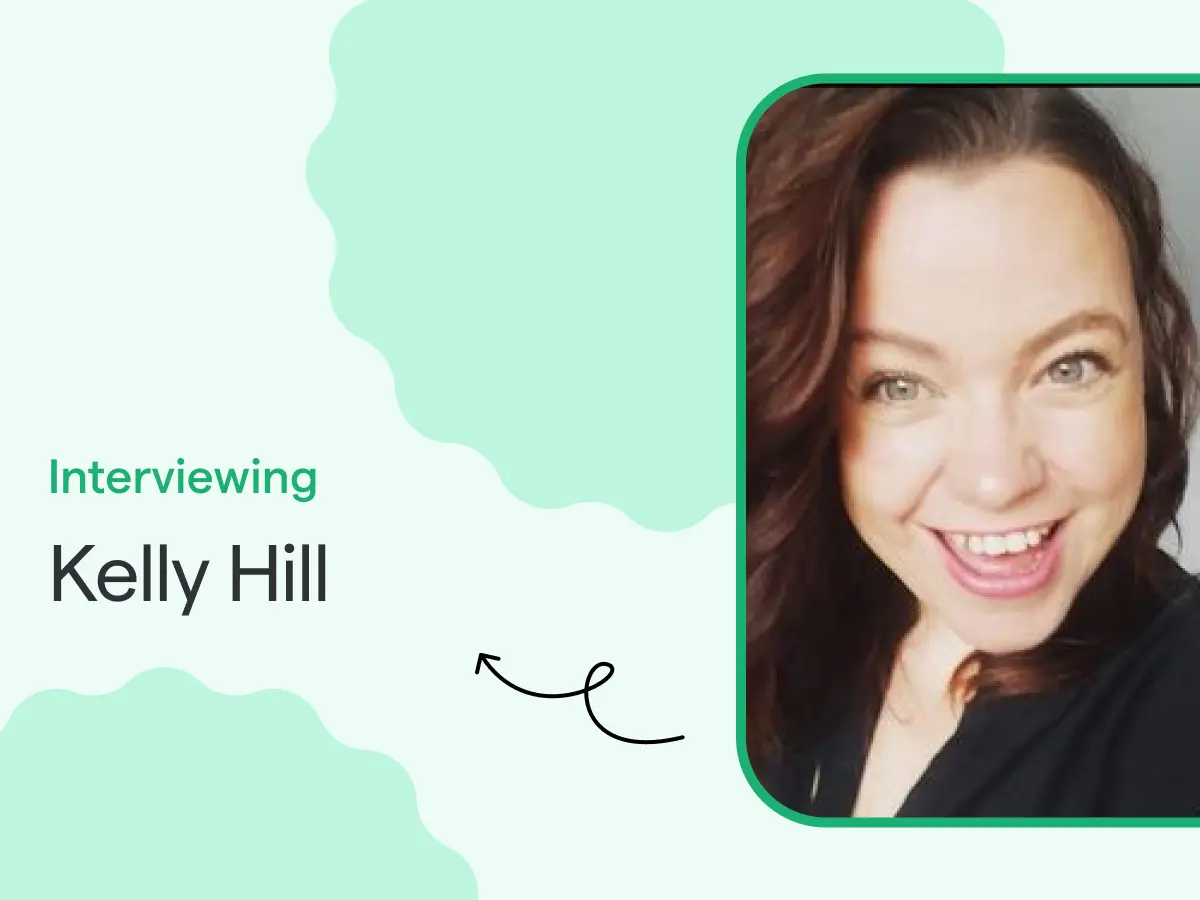settings
children
With Famly since
For the majority of us, we joined the sector because we wanted to make a difference to children. And when we think about what that looks like, it’s much easier to envision reading stories, giving a reassuring cuddle, or teaching something awe-inspiring than sitting behind a desk with a calculator.
But all that wonderful support and teaching can’t happen without the planning, strategy, finances, and everything else that comes with the ‘business side’ of the Early Years. The difficulty, however, can be moving from delivering early education and care to running a business.
“The biggest thing people reach out to us for is support with developing their own leadership,” says Kelly Hill, CEO of Early Years Leadership, “Managers become managers because they’re great practitioners. They grow through the ranks and become leaders, and suddenly they’re left with HR, business management, finance, and adults to manage instead of little people.”
That’s why Kelly founded Early Years Leadership in February 2020, to guide Early Years professionals through their leadership journey and offer support for those who needed it.
I was lucky enough to sit down with her to discuss leadership, strategy, and how we can ‘be more business’ in the Early Years. Here are her four biggest bits of advice:
1. Don’t be afraid to focus on revenue
When educators become managers, their role in the setting can change dramatically from being in the rooms with the children to suddenly sitting behind a desk.
“There has to be a mindset shift,” says Kelly, “You’re not looking at just your room or just your key children. You’ve got to be strategic and look at the bigger picture of your nursery.”
But how do you do it? Kelly advises that we have to start by realising that profit isn’t a dirty word. Your setting is a business, so it’s okay to focus on how to make money.
“If we don’t make a profit in our nurseries (or a surplus if you’re a non-profit organisation) how can you reinvest?” asks Kelly, “How can you invest in staff training? How can you buy new resources? How can you grow and develop?”
That’s not to say it won’t feel a little uncomfortable at first. Kelly herself runs a setting as well as The Early Years Company and knows that in the sector, leaders and educators want to offer services to everyone who needs them and support families who are struggling.
But, while children and families should of course be at the centre of our practice, revenue is essential to continue to survive as a business.

2. Make more money by knowing what tasks to prioritise
Part of focusing on profit is as much about what you don’t do, as what you do. Choosing where to outsource or delegate jobs can be challenging when costs are a concern, but Kelly’s advice here is simple.
“It’s important to realise that where your skillset is is where you’re going to make the most money,” she says, “You should always be spending your time on the areas of your business where you can have the most impact and generate the most revenue.”
So how do you decide which things to do? Kelly recommends breaking your tasks down into four categories:
- Things you enjoy
- Things only you can do or you excel at
- Things you don’t enjoy
- Things anyone can do, or you’re not particularly good at
Using this framework, anything that falls into the ‘Things you enjoy’ and ‘Things only you can do or you excel at’ are the jobs you should be spending time on. Jobs that fall into the ‘Things you don’t enjoy’ and ‘Things anyone can do, or you’re not particularly good at’ are the ones that should be delegated out to someone or something else.
Say you hate calculating and sending out invoices but force yourself through an entire workday of painfully and slowly struggling through each one, every single month. Would it not make sense, and be more cost-effective, to pay someone else to do it efficiently in half an hour?
Don’t forget, doing a job yourself because you think you can’t afford to outsource it can end up being more expensive, as your time costs money too.
3. Limit your to-do list to just three things
Speaking of your time being valuable, a mile-long to-do list isn’t the most effective or strategic way to get things done. Instead? Simply scrap it.
“What happens is, that to-do list becomes really, really long,” says Kelly, “And you find yourself doing things that aren’t on the list, just so you can add them to the list to cross them off.”
A long to-do list can simply reinforce the volume of tasks to do and leave you feeling helpless or overwhelmed. Instead, Kelly advises that the night before, you create a list of just three things for the following day:
- One thing with a deadline that you must get done tomorrow
- One thing you’ll enjoy
- And a ‘cherry on the top’ task that doesn’t have to get done, but would be great if it did.
“Those three things don’t feel quite so overwhelming. Again, it’s about the mindset,” says Kelly, “Even if you have other things to do, you know that those are my three priorities for that day.”
Kelly also advises doing the tasks you enjoy the least at the very start of the day, if possible. That way, they’re over and done with and you don’t have to spend the whole day worrying about them hanging over you.

4. Model leadership for the rest of your team
To the rest of the team, you may be the only example they have of what leadership looks like in an Early Years setting. Kelly advises using this knowledge to remind yourself to look after your own well-being too. And why? Because you influence whether your team want to progress through the sector to a role like yours.
“If you’re constantly busy and constantly stressed, saying ‘I can’t do this and I haven’t got time for that and I haven’t had a lunchbreak in three weeks’, what kind of role model is that?” asks Kelly, “Who would want to become a nursery manager if that’s what they’re seeing it’s like?”
Of course, being a leader in the Early Years can be challenging and it’s not useful to sugar-coat that for potential future managers. But what you can do instead is role model how to look after yourself while running a setting. Delegating key tasks offers your team a chance to grow and progress, but if you make that progression option entirely unappealing, you’re putting off your next in line from stepping up.
While it may be hard to close the office door and ask not to be disturbed, setting the boundaries that enable you to get work done shows your team how they can do it too, making everyone more efficient.
The big ideas
Top tips from Alphabet House
Get top tips from a setting just like yours. Hear from Alphabet House on why and how they use Famly - and why they’ve never looked back.
Read their story









